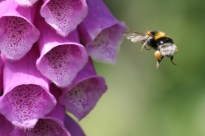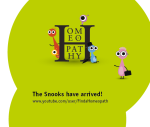 As we approach the first Remembrance or Armistice Day commemorations of the First World War centenary it is appropriate to be mindful of what exactly we are marking on Sunday, and on the 11th of November 2014. Yes, we are offering up our thanks to those who gave their lives in the Great War and subsequent conflicts, but we must also remember those who survived, lived, and are living with the aftermath of the war.
As we approach the first Remembrance or Armistice Day commemorations of the First World War centenary it is appropriate to be mindful of what exactly we are marking on Sunday, and on the 11th of November 2014. Yes, we are offering up our thanks to those who gave their lives in the Great War and subsequent conflicts, but we must also remember those who survived, lived, and are living with the aftermath of the war.
In Shell Shocked Britain: The First World War’s legacy for Britain’s mental health, Suzie Grogan looks at the impact of the First World War on the men, women and children who survived it. How did those four years of conflict affect the way we view the mental health of those traumatised by their experience of war, whether directly or indirectly?
Dr Peter Heinl, in Splintered Innocence and others have long studied how ‘neuroses’ can be transmitted from parent to child, replicating traits down the generations. It has not been easy, as data is limited and follow-on studies of those diagnosed with shell shock or what we would now refer to as ‘combat stress’ is very limited, or non-existent. Work with Holocaust survivors, however, has offered greater consistency in the results of studies into the intergenerational effects of parents’ traumas. Published work has suggested greater vulnerabilities to Post Traumatic Stress Disorder (PTSD) in second and third generation survivors. Responses to a traumatic event – whether in conflict situations or a personal trauma such as bereavement or serious illness can be more marked in the children of traumatised parents.
Suzie Grogan was inspired to write this book when she discovered that her shell shocked great-uncle Alfred Hardiman had killed his ex-girlfriend and himself in 1922. His act sent shock waves through his community and through the generations of his own family, but it was not an isolated case. She discovered that her grandfather had also suffered from shell shock, along with tens of thousands of other men who fought in the First World War. Identifying other members of her family who had subsequently experienced mental health issues, and acknowledging her own periods of depression and acute anxiety, Grogan was keen to examine how the events of 1914-18 continue to resonate with us 100 years on and in doing so she uncovered new material to chart the many tragedies with their roots in the conflict.
Shell Shocked Britain looks at:
- the direct effects of shell shock on the troops and their families,
- the different medical approaches to ‘cure’ shell shock, including electric shock treatment, hypnotism and the talking therapies, as well as ‘miracle’ cures.
- The impact of the1922 Committee Report on Shell Shock that was supposed to change the way men were treated in future conflicts.
- the devastating air raids that brought the war, literally, into the domestic lives of the Home Front, killing civilians as they stood in the streets and wrecking the Upper North St school in Poplar, East London, killing 18 children.
- The lingering after –effects of the Spanish influenza virus and the horrors of an outbreak that killed 200,000 in Britain alone as war continued to rage.
- why thousands turned to séances and spiritualist church and how the rise of the Eugenics Society had direct links to the conflict, with leading thinkers supporting unthinkable responses.
- how tragedies such as that perpetrated by Alfred Hardiman and suicides in general increased even into the 1930s.
- the legacy of shell shock and lessons for future conflicts – 1914 to 2014
In the book Suzie Grogan asks tough questions of her 21st Century audience. We are told not to attribute modern views on historical events, but, she maintains, these are our close kin – parents, grandparents and great grandparents. For hundreds of thousands of people the trauma of the Great War never left them, and in the modern army highly trained men and women still break down, coming back to a civilian life for which they are ill-prepared.
To ensure children are protected from the higher levels of family breakdown, substance misuse, domestic violence and homelessness that affect troops now as they did 100 years ago, it is important, as this book highlights, to use the next four years of commemorative events to remember those who continue to struggle with the fallout of war, and support them.
Suzie Grogan is talking at the Taunton Literary Festival on 11th November 2014 and for Taunton Association for Psychotherapy on the 14th November . See suziegrogan.co.uk for more details











